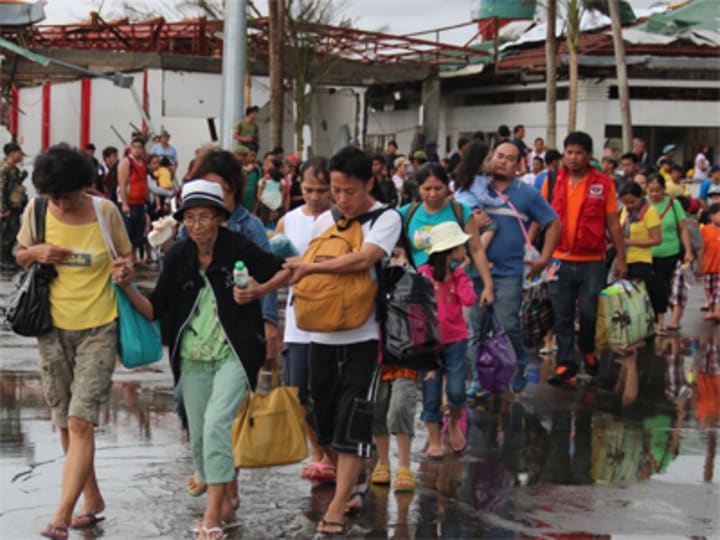
Was climate change to blame for Typhoon Haiyan?
The debate has intensified as graphic images from my home, the storm-ravaged Philippines, continue to splash over the Internet and TV screens worldwide. In Warsaw, meanwhile, negotiators are edging toward a global agreement on emissions and climate financing. I can’t help but wonder who’ll be left high and dry.
At the event in Poland, the Philippine representative was understandably hammering the point that yes, Haiyan is without a doubt a product of climate change.
“We can fix this. We can stop this madness. Right now, right here,” Naderev Saño said in a tearful speech Monday before delegates of the 19th session of the Conference of the Parties to the United Nations Framework Convention on Climate Change.
Saño’s family hails from one of the areas that bore the brunt of Haiyan’s fury, Tacloban City, Leyte. And he told his peers that he’d go on hunger strike until “a meaningful outcome is in sight.”
Whether this is climate change or not, all I know is: This is different.
As a Filipino, I’ve lived through many disasters — we endure more than 20 typhoons a year. A few years ago, I was trapped inside my abode as Ketsana pummeled the country and submerged a great part of Manila. Others lost their property, if not their lives.
And no, contrary to what many are saying, Yolanda — as Haiyan is known here — is not the strongest-ever tropical cyclone the country has experienced. Typhoon Reming has that distinction. But history books and statistics don’t mean much now.
Some of us really got lucky. When the typhoon struck land last Friday, the region where my family lives barely had rain, although there may have been stronger winds than normal. But we had electricity and all the usual creature comforts.
That day, initial reports reminded me of what I saw on TV the morning after Christmas of 2004 when water invaded and engulfed parts of Indonesia due to a tsunami. Days later, I couldn’t shake off images of Haiti after the 2010 earthquake.
Indeed, this is a tragedy as much as it is a TV spectacle. Many Filipinos can only watch from afar, wondering what could be done to prevent a disaster like this or to help those who survive it.
There’s certainly a flurry of activities to provide aid to typhoon victims. But as much as there is concern for the survivors’ welfare, there is also concern about whether donations will indeed reach them. Distrust toward the government has spiked again lately amid allegations that some officials have pocketed pork barrel or development funds.
There’s a lot of talk about disaster preparedness. On TV, I saw a lady point out the need for a concerted effort to disseminate best practices on disaster risk reduction, because there have been successful examples all around the country.
After Ketsana, there was lots of talk about making the country resilient to disasters through sustainable housing and better storm drainage. There’ve been efforts, certainly, but more is needed.
As Polish environment minister Marcin Korolec said at the climate summit, this was an “awakening” tragedy.
“I say awakening because it is yet another proof that we are losing this unequal struggle between man and nature,” the COP 19 president said. “It got the better of us yet again, and will continue to do so in the future if we do not close ranks and act together to strike back.”
Governments certainly must act. But we the people — and the aid community at large — need to step up as well, especially if these superstorms become the new normal.
Join the Devex community and gain access to more in-depth analysis, breaking news and business advice — and a host of other services — on international development, humanitarian aid and global health.




